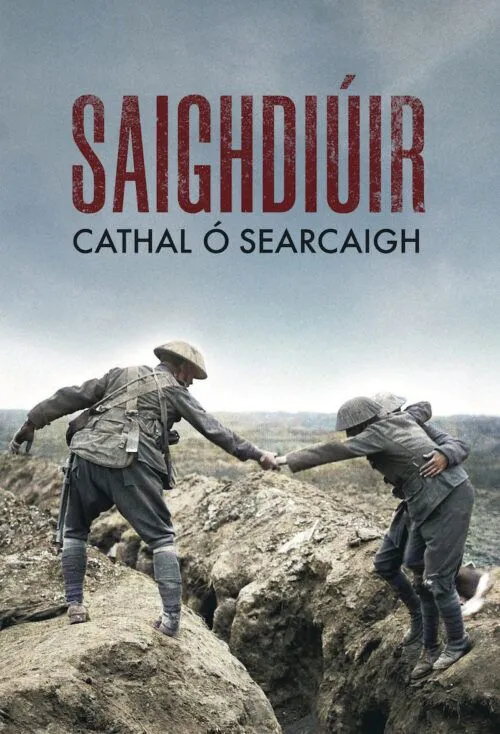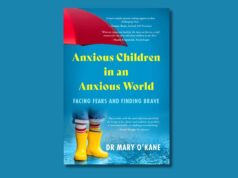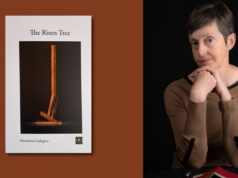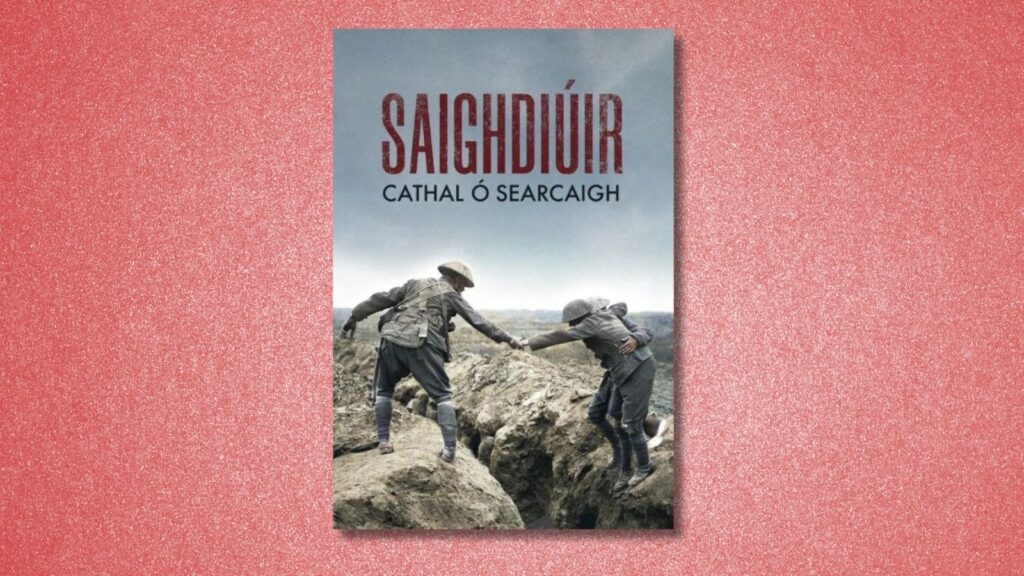
Saighdiúir|Cathal Ó Searcaigh|Leabhar Breac
Cathal Ó Searcaigh displays an imaginative and inspiring mastery of language
by Cathal Póirtéir
Cathal Ó Searcaigh has been hailed as one of the most important Irish language poets of his generation since he arrived on the scene in the late 1970s. Since then, his collections have cemented his reputation as a unique voice with a wide range of registers and themes. His most recent and very substantial collection An Tír Rúin (Arlen House, 2022) has undoubtedly added to his achievements.
His reputation as a masterful and dedicated poet may, for some, have obscured his abilities as a prose writer, although he has written a number of plays for radio and stage as well as two novels: the charming novella Pianó Mhín na bPréachán (Cló-Iar Chonnacht, 2011) and Teach an Gheafta (Leabhar Breac, 2018), a complex story of a young man struggling to find his way and find a sanctuary in the hills of Donegal after personal trauma.
Ó Searcaigh’s third and latest novel Saighdiúir (Leabhar Breac, 2023) is a tour de force of storytelling that should see him ranked as highly as a prose writer as he has long been as a poet.
The story centres around Maitiú Mac Suibhne, a young man from the Donegal Gaeltacht at the beginning of the twentieth century. He is working as an apprentice gardener in Larkfield, the local Big House, while other members of his family work on the estate in various capacities, showing the respect and subservience their employers expect of them.
their relationship becomes strained as class tensions and colonial attitudes gradually change and sour their relationship
Sir Ralph and Lady Clarinda, lord and lady of the manor, recognise Maitiú’s abilities and intelligence and he is encouraged to ‘improve’ himself, becoming proficient in English and reading widely. Being of an age with Albert, the son of the big house, the boys often play together when the young master is in Ireland during school holidays. Increasingly their relationship becomes strained as class tensions and colonial attitudes gradually change and sour their relationship.
When World War I breaks out, Maitiú does what is expected of him by his employer and enlists in the army with his best friend Dónall Ó Gallchóir. They innocently hope that there is a foreign adventure in store for them—but instead find themselves heading for the bloody slaughter of trench warfare in France and Belgium.
this is a book about the loss of innocence, the loss of life, and the loss of human feeling
This is a book about the loss of innocence, the loss of life, and the loss of human feeling. Maitiú and Dónall depend on the closeness of their relationship to get them through the many horrors they witness. Ó Searcaigh describes in stark and credible detail the horrors of gas attacks, constant bombardment, desperate conditions in waterlogged trenches, the constant bloodshed on the battlefield and the loss of life and limbs the two young men have to witness.
The author surrounds the two young Donegal men with other notable characters as they come across fellow soldiers and officers. His decision to leave the dialogue of the English speakers in English allows the writer to have fun in finding the various dialect and registers of the characters, some Irish, some English, some Scottish. We also see attempts to communicate with the local French population in very basic French.
His decision to leave the dialogue of the English speakers in English allows the writer to have fun in finding the various dialect and registers of the characters
Notable differences in class and attitude in the army contribute to the narrative in various ways. On more than one occasion the two young Donegal men cross paths with Albert, each time revealing the widening gap between them and the deep faults in Albert’s character as ‘an officer and gentleman’. This is echoed in an incident that occurs at home between Albert and Maitiú’s sister that changes the family’s relationship towards the big house.
Many of the political questions of the time are woven through the fabric of the story: Irish attitudes to the war; reactions to the Easter Rising; the Orange and the Green; rising militant opposition to British rule in Ireland; increasingly strained relations at home between landlords and their tenants; class tensions in the army and in civilian life. These and other themes enrich the story and relieve the possible tedium of constant trench warfare.
We have descriptions of military life away from the front: the revelation to a group of officers that Dónall, and Maitiú are superb traditional musicians; the treatment of soldiers in field hospitals; the self-deluding jingoism and hypocrisy of officers and army chaplains; the questioning of religious faith in the face of the barbaric cruelty; unnecessary bloodshed and obscene loss of life.
many of the political questions of the time are woven through the fabric of the story
We find ourselves in small hamlets and towns in various states of destruction, some still offering comfort of one type or another to the soldiers. We recognise names and infamous battles from our history books and are mired in the trenches with the men as they wait for the order to go over the top into no-man’s land at the Somme in August 1916 and Ypres in August 1917.
At heart, Saighdiúir is a powerful anti-war novel that takes us to the heart of the slaughter and lets us witness the physical and spiritual devastation war brings to soldiers and societies. It underlines the importance of love, friendship, and mutual respect and the threat to life at all levels brought about by unbridled militarism. The book is dedicated to the memory of the men from the author’s native Cloich Cheann Fhaola who died in the Great War.
Saighdiúir is an immense achievement. Cathal Ó Searcaigh displays an imaginative and inspiring mastery of language, character and plot in one of the most impressive Irish language novels you are likely to read this or any other year.
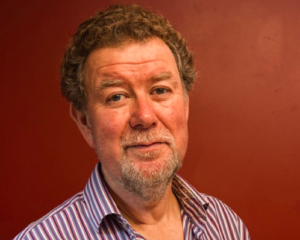
Cathal Póirtéir has specialised in researching, presenting and commissioning Irish interest material in various radio formats and in books, including history, literature and folklore in Irish and English, as well as current affairs and drama.








